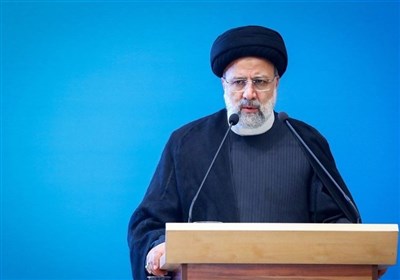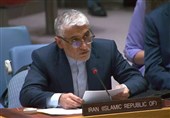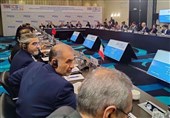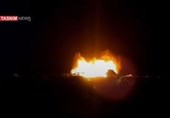Solution to Crisis in Korean Peninsula within Reach: US Expert
TEHRAN (Tasnim) – A senior political analyst based in Washington hailed the latest developments in the East Asian region, including the election of Moon Jae-in as the new South Korean president, saying that a final solution to “the crisis in the Korean Peninsula is within reach”.
“Moon's election, together with Trump's firm decision to end Obama's military confrontation with China and Russia, and with the highly successful Belt and Road Forum in Beijing, means that the solution to the crisis in the Korean Peninsula is within reach,” Michael O. Billington, a senior editor with the Executive Intelligence Review, said in an interview with the Tasnim News Agency.
Billington is an activist in the LaRouche Movement, Asia editor for the Executive Intelligence Review, and author of Reflections of an American Political Prisoner: the Repression and Promise of the LaRouche Movement.
The following is the full text of the interview:
Tasnim: As you know, South Korea's new president, Moon Jae-in, who is a liberal former human rights lawyer, was sworn in on Wednesday. According to analysts, he is facing a tangle of economic and political problems in the East Asian nation. What is your assessment of his term in office?
Billington: Moon's election, together with Trump's firm decision to end Obama's military confrontation with China and Russia, and with the highly successful Belt and Road Forum in Beijing, means that the solution to the crisis in the Korean Peninsula is within reach. One of Moon's first decisions was to send a delegation to the Chinese-sponsored BRI forum, despite the extreme tension between Seoul and China over the deployment of THAAD. The two countries agreed to re-establish positive relations. Note also that Abe has established strong relations with Putin. This means that all of the so-called "six-party" members are potentially on board for working with Moon to start talks with the North, ending the insane Obama policy of no-talks, sanctions, and military build-up.
Tasnim: On foreign policy, it seems that Moon has taken a more conciliatory approach to North Korea than his conservative predecessors. He has said he would be prepared to go to Pyongyang "if the conditions are right." Moon launched international efforts to defuse tension over North Korea's weapons development on Thursday, urging both dialogue and sanctions while also aiming to ease China's anger about a US anti-missile system. In his first speech as president, he said he would immediately address security tensions that have raised fears of war on the Korean Peninsula. What do you think about these developments and Seoul-Pyongyang relations?
Billington: Both Trump and Moon have asserted -- repeated on Tuesday in the meeting between Moon and Trump's envoy Mathew Pottinger -- that they would be open to meeting with Kim Jong-un in the right conditions - and that the two countries agree that the approach to the North must be both sanctions and proposals for talks.
Tasnim: Moon first spoke to Chinese President Xi Jinping. The election of the Korean president has given fresh hope of a thawing in relations with China, how do you see the future of relations between the two countries?
Billington: Moon's envoy to China to the Belt and Road Forum met with Yang Jiechi, who called for restoring positive relations and resolving the crisis over the THAAD, while working together to arrange talks with Pyongyang.
Tasnim: Moon's advocacy of engagement with North Korea contrasts with the approach of the United States, South Korea's main ally, which is seeking to step up pressure on Pyongyang through threatening it militarily. What is your prediction about the future of Seoul-Washington ties under Donald Trump?
Billington: It is important not to play into the British "fake news" approach to Trump. Trump is not a dupe to the British/Wall Street oligarchy. He has rejected the British Cold War division of the world into East vs. West, the core ideology of the British Empire. He has been absolutely clear that he will not tolerate the myth that Russia and China are enemies. The key is that Trump's emissary to the Belt and Road Forum, Mathew Pottinger, agreed to establish a US-China Silk Road Institution, and invited China to attend an investment forum in Washington in June, while also meeting with Russian Foreign Minister Lavrov and arranged a meeting with Putin. Iran has a legitimate concern over Trump's approach to Iran but must take into consideration that his rejection of the perpetual war policy of the British and Obama means that his actual policies with Iran will be moderated by his relations with Russia and China. On Korea, Trump almost certainly will work with Russia, China, Japan and Seoul to establish talks with Pyongyang, and a solution to the last point of manipulation by the British will be eliminated.





